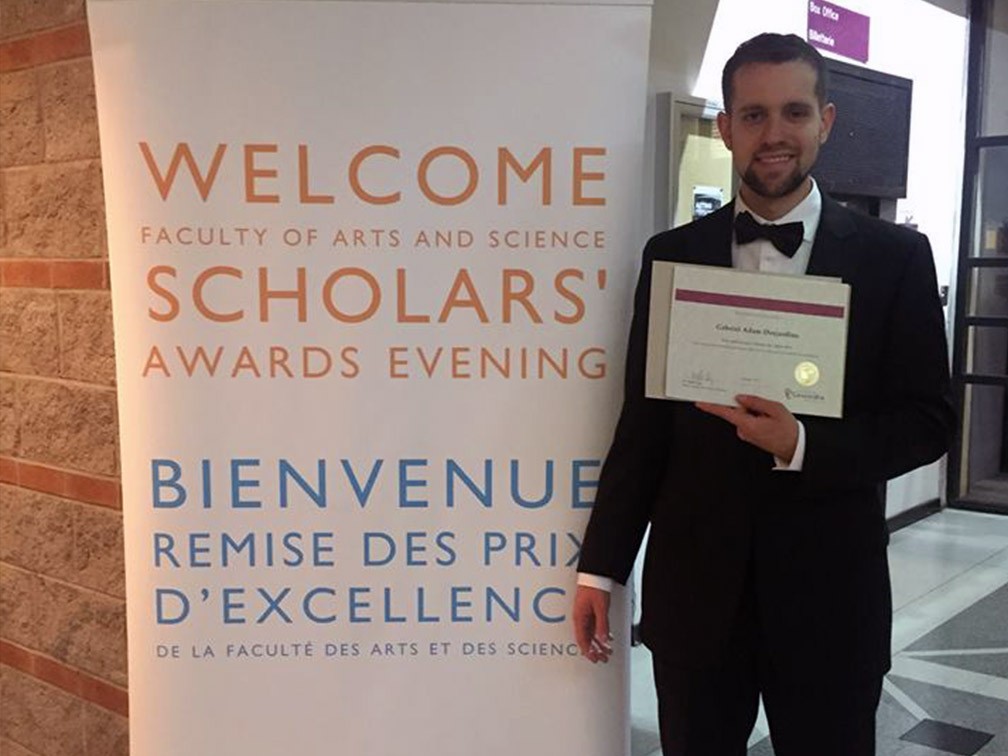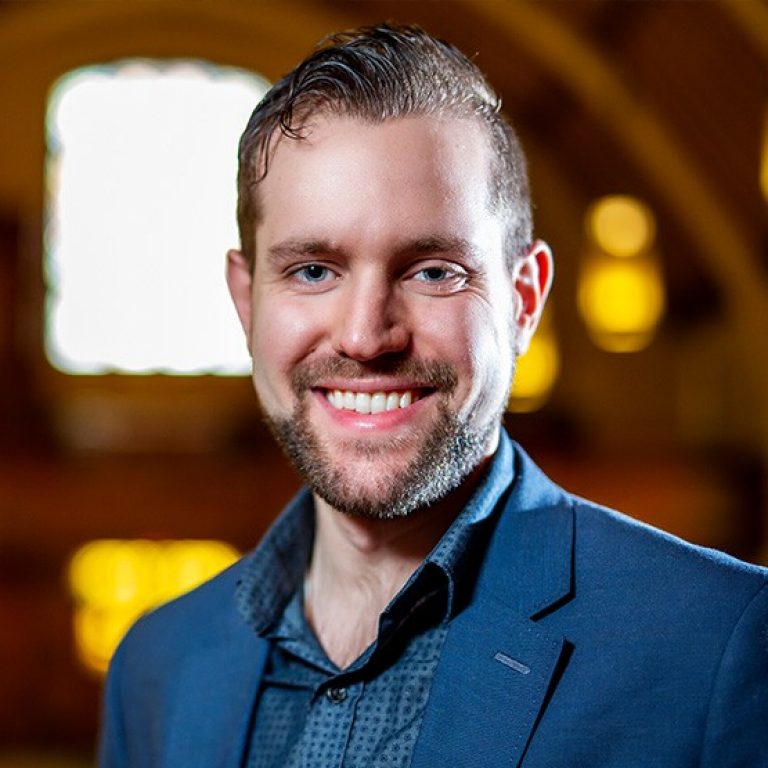Gabriel Desjardins
Bachelor of Arts, 2019
Honours in Theological Studies
Minor in Professional Writing
Now pursuing a Master of Arts in Theological Studies
“It opened up my horizons to a much broader plane.”
Studying theology is about understanding the underpinnings of belief
Gabriel Desjardins wanted to learn how to help people reflect on their own worldviews. Here’s how the Theological Studies program helped him gain that insight.
What stands out to you about the Theological Studies program?
You get a really well-rounded look at the tradition of theology and that’s something I found very attractive.
The program is quite unique in that yes, it focuses strictly on Christianity, but the professors come from very different backgrounds within Christianity so they all bring a unique perspective.
What made you want to go on to Master’s-level studies?
I’m very interested in what it is about theology that caused me to reflect on my own worldview.
My research has to do with pedagogical strategies that can produce that kind of a change in people who come from a fundamentalist background, or at least that can get them to begin reflecting. You can’t change anyone but you can show them the tools that will get them to reflect on their own tradition and the way that they see the world.

It sounds like the program has had a profound impact on determining your career path.
Absolutely. No matter where I end up career-wise, whether I continue working in administration or if my dream of teaching one day gets fulfilled, doing theology at Concordia has been the most monumental decision of my life. It transformed the way I see the world and, because of that, it opened up my horizons to a much broader plane than I would have had if I didn’t study theology.
What are some common misconceptions about studying theology at university?
A lot of people think the professors are priests. But at Concordia, we’re doing theology in a secular context. Some of our professors are confessional and they are believers, but at the same time they’re trained in such a way that they can separate their own personal convictions from the actual scholarship. We have other professors who are atheists, but they’re not there to push their agenda, either.
What are some benefits of taking courses in theology?
It’s a great way to learn critical thinking skills and get informed about people’s religious convictions. Because there can be a lot of what we call religious illiteracy. And, in fact, religious illiteracy can sometimes be a reason people will move towards fundamentalist or extremist movements.
We also have some courses on Indigenous spirituality. Some of our professors have been interested in these questions for quite some time, and this is something that the program is starting to explore more.
